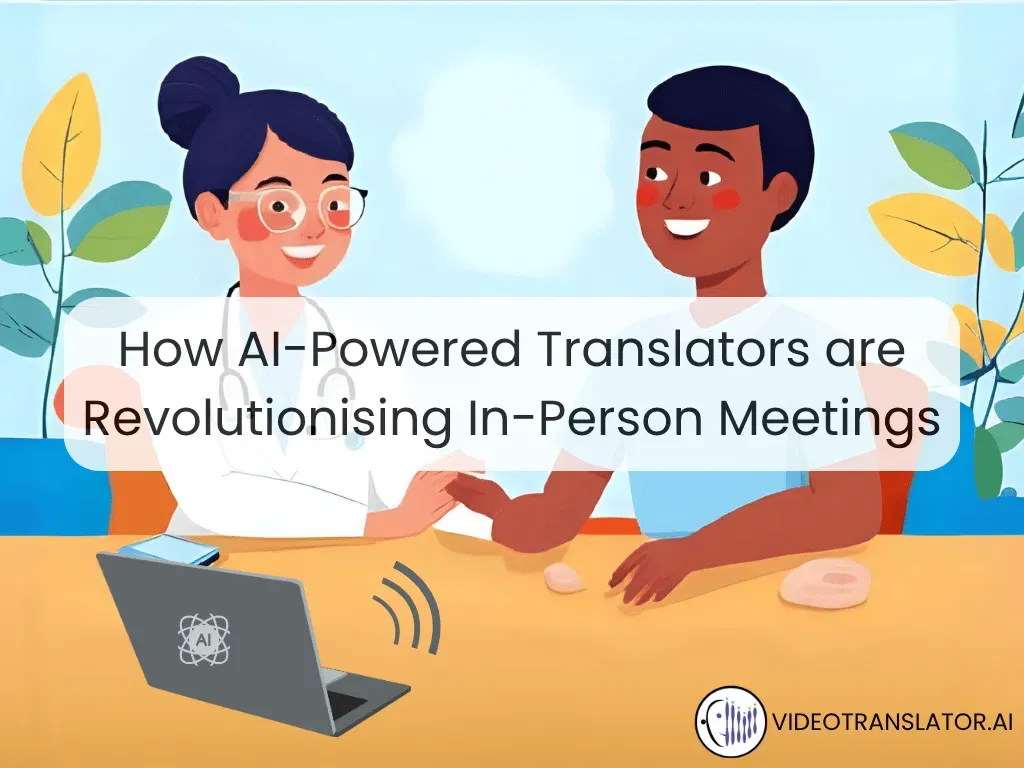In the wake of President Trump’s executive order declaring English the official language of the United States, translators and interpreters across the country are grappling with what this shift could mean for their profession—and for those who rely on language services.
We think that this will be a watershed moment in how the industry reinvents itself to move away from selling to cost centres - compliance, risk management, and patient advocacy in healthcare, to selling the market benefits and into profit centres.
Below is an overview of the key changes, potential impacts, and why language access remains critical despite new federal priorities.
1. The Previous Framework: Language Access Policies
Until now, federal agencies receiving government funding were generally required to have language access policies. They couldn’t discriminate against individuals who needed services in languages other than English. This requirement applied broadly to a host of programs and institutions—especially those in healthcare, legal, and educational sectors—and helped ensure that non-English speakers could access essential services.
What Stays the Same?
- The executive order does not touch important legislation like the Americans with Disabilities Act, the Rehabilitation Act, or the Patient Protection and Affordable Care Act (Obamacare).
- “Flow-down requirements”—the stipulations that ensure organisations follow language access policies—will continue to operate, but each federal agency has discretion over how strictly it enforces these mandates.
2. Translators vs. Interpreters: Who Feels It Most?
The new order will primarily affect interpreting, as translations of vital documents generally only need to be done once. Interpreting, on the other hand, requires live, ongoing support—especially in critical areas like healthcare, legal proceedings, and community services.
- Healthcare Interpreting: Without consistent federal support, hospitals and clinics may feel less obligated to provide qualified interpreters for patients with limited English proficiency.
- Legal and Educational Settings: Courts, schools, and social service agencies risk a decline in interpreting resources, potentially undermining fair access to justice and quality education.
Overall, the order sends a clear signal that language access is not a federal priority, putting substantial strain on the interpreting side of the language industry.
3. What Does This Mean for the Language Services Industry?
While the executive order is binding on the executive branch, it is not an act passed by Congress. Therefore, it does not directly bind the legislative or judicial branches. However, it does reduce the federal emphasis on funding for language access initiatives, which could create a domino effect across federally funded programs.
- Pressure to Reduce Language Access: Departments may feel compelled to cut back on interpreters and translation services.
- A Large Population Still Needs Support: Over 71 million Americans speak a language other than English at home, and 26 million are considered limited English proficient. The demand for language services remains high.
In short, while federal support might waver, the need for language services is not going away.
4. Why Language Access Still Makes Sense—Even Without Federal Mandates
Despite the executive order, there are practical reasons many institutions will continue to invest in language services:
Healthcare Outcomes and Cost Savings:
- Research over the past 35 years shows that providing professional interpreting and translation can reduce costs and malpractice claims for healthcare providers.
- Approximately 5% of malpractice claims are attributed to misunderstandings, which language access programs could help prevent.
Legal Liability and Professional Standards:
- Bar associations emphasise the importance of fair trials and due process, which require comprehensible communication for all parties.
- Insurers also factor in the quality of language services, recognising that misunderstandings in legal and financial documents can lead to costly errors.
Economic and Ethical Motivations:
- Banks and mortgage originators have a vested interest in ensuring that clients understand the terms of loans and other financial products.
- Strong language services can reduce risk, enhance client trust, and ultimately lead to better business outcomes.
5. The Ripple Effect on LSPs (Language Service Providers)
For many Language Service Providers, up to 70% of their revenue comes from language access work in healthcare, courts, educational institutions, and social services. With a potential downturn in federally mandated language services, LSPs must consider diversifying their revenue streams. This could mean exploring:
- Corporate Training and Localisation: Helping businesses adapt materials for global audiences.
- International Marketing: Translating and localising marketing campaigns for companies expanding overseas.
- Technology and E-Learning: Collaborating with tech firms and educational platforms that need ongoing multilingual support.
By staying flexible and broadening their offerings, LSPs can continue to thrive even if federal demand for interpreting and translation services dips.
Conclusion
Although the executive order signals a shift in federal language access policy, the underlying need for translation and interpreting remains. With millions of Americans speaking languages other than English in their homes and vital sectors like healthcare, legal, and financial services relying on accurate communication, a built—in demand transcends political mandates.
This executive order is undoubtedly a call to action for translators and interpreters: adapt, diversify, and advocate for the value of language services. The free market and ongoing legal and ethical requirements will continue to drive the industry forward—even as the federal stance on language access evolves.
If you are an interpreter seeking innovative business models to enhance your career, reach out to us at hello@videotranslator.ai! Let’s explore new opportunities together!
Resources
Designating English as the Official Language of The United States – The White House (March 1, 2025)
Federal Register: Improving Access to Services for Persons With Limited English Proficiency (August 11, 2000)
Trump Makes English the Only Official Language of the US, Revokes Clinton Language Access Order - Slator (Read for context)
Federal Language Access Rights are Deeply Entrenched in Federal Regulatory and Case Law | LinkedIn
What Trump’s English-Only Executive Order Means for Language Access | LinkedIn (Awesome breakdown feat. Dr. Bill Rivers, a language policy advocate)



